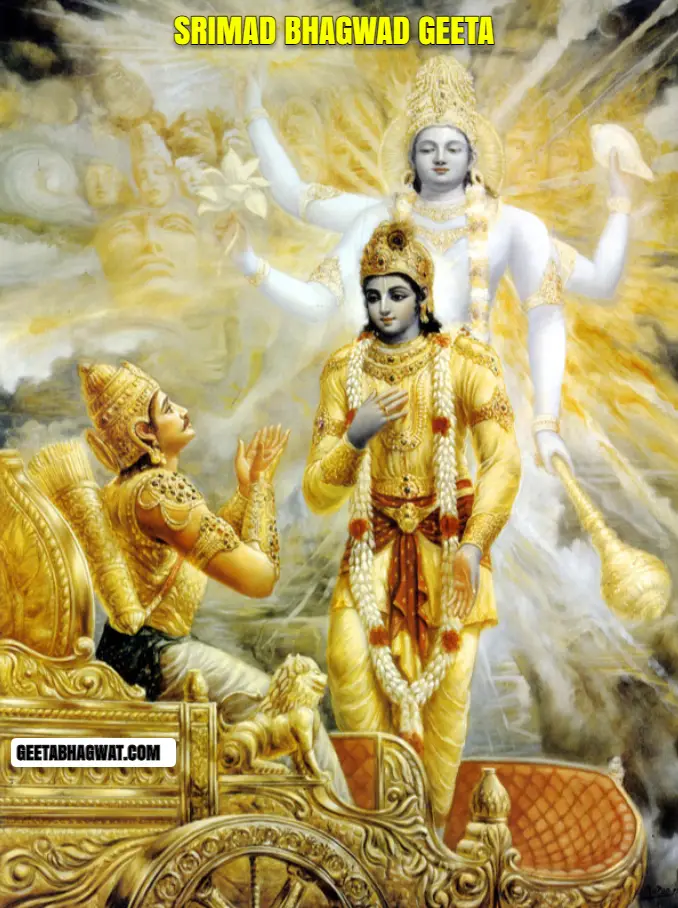The Srimad Bhagwad Geeta, often simply referred to as the Geeta, is a 700-verse Hindu scripture that has been serving as a guiding light for millions of people over centuries. This sacred text, part of the Indian epic Mahabharata, is more than just a religious book; it is a profound philosophical treatise that addresses the fundamental aspects of human existence and the path to spiritual enlightenment.
Historical Context of the Bhagwad Geeta
The Bhagwad Geeta is set in the context of the Mahabharata, an epic tale of conflict between the Pandavas and the Kauravas, two branches of the Kuru dynasty. The Geeta is a conversation that took place on the battlefield of Kurukshetra just before the onset of a great war. The dialogue is between Prince Arjuna, a skilled warrior who is confused and morally troubled about fighting in the war, and Lord Krishna, who serves as his charioteer and spiritual guide. This dialogue is recited by Sanjaya to his king Dhritarashtra, as Krishna has given Sanjaya mystical sight so he could see and report the battle to the king.
The Core Teachings of the Bhagwad Geeta
The Bhagwad Geeta’s teachings are vast and profound, addressing a multitude of aspects of life and spirituality. At its core, the Geeta teaches the concept of Dharma, or duty, and the importance of righteousness and ethical conduct. It emphasizes the need for selfless action, performed without attachment to the fruits of the action. The Geeta also explores the nature of the self, the concept of the eternal soul, and the transient nature of the physical world. It synthesizes the ideas expressed in the central texts of Hinduism – the Vedas and Upanishads – into a single, supreme vision of having belief in one supreme God and the underlying unity of all existence.
The Paths to Spiritual Realization
The Bhagwad Geeta outlines various paths to spiritual realization. These include Karma Yoga, the course of selfless action; Bhakti Yoga, the path of devotion; Jnana Yoga, the way of knowledge; and Dhyana Yoga, the path of meditation. Each path offers a different approach to spiritual enlightenment, catering to different human temperaments and inclinations. The Geeta inspired the Bhakti (“devotion”) Movement, which then influenced the development of religions like Buddhism, Jainism, and Sikhism. Krishna beautifully explains the path of selfless devotion as one of the paths toward self-actualization, enlightenment, recognition of the truth of existence, and actual liberation from the cycle of rebirth and death.
The Bhagwad Geeta and Modern Life
Despite being thousands of years old, the teachings of the Bhagwad Geeta remain relevant in today’s world. The Bhagwad Geeta’s wisdom provides guidance on how to navigate the complexities of modern life, offering insights on dealing with stress, making ethical decisions, and finding a sense of purpose. The Geeta teaches us to maintain equanimity in the face of success and failure, and to live a life of balance and moderation. Its teachings emphasize personal responsibility, universal love, and the underlying unity of all living things.
Frequently Asked Questions
Who wrote the Geeta?
The Geeta is part of the Indian epic Mahabharata, which is traditionally attributed to the sage Veda Vyasa ji.
When was the Geeta written?
The exact date is yet unknown, but it is generally believed to have been written between the 5th and 2nd century BCE. However, every sect/cult has different beliefs on the specific date.
Who is Krishna?
Krishna is the Supreme GOD in Hinduism, who, in the context of the Geeta, serves as Arjuna’s charioteer and spiritual guide.
Who is Arjuna?
Arjuna is a prince and a warrior in the Kuru dynasty who is guided by GOD Krishna in the Geeta.
Where did GOD Krishna tell the Geeta?
The teachings of the Geeta were imparted on the battlefield of Kurukshetra just before the onset of a great war.
Conclusion
The Bhagwad Geeta, with its timeless wisdom and practical guidance, continues to illuminate the path for those seeking answers to life’s fundamental questions. It remains a universal scripture, transcending religious and cultural boundaries, offering profound insights into the art of living and the journey towards spiritual enlightenment.
For more posts on Geeta ji and Bhagwat ji stay updated with GEETABHAGWAT
